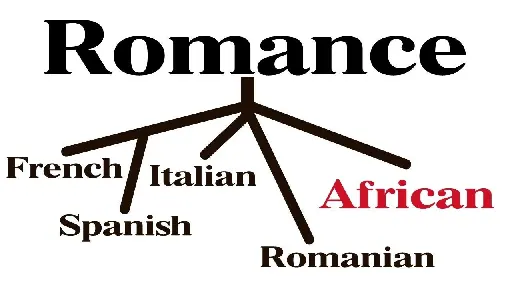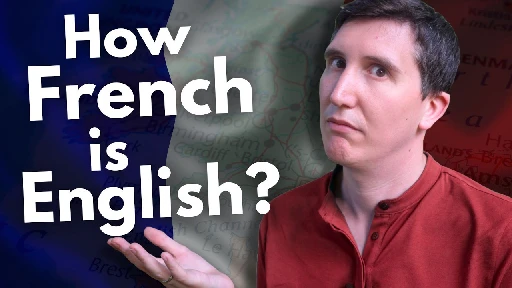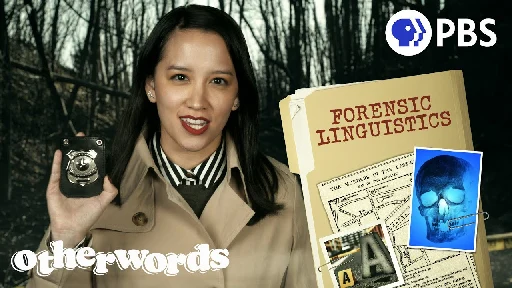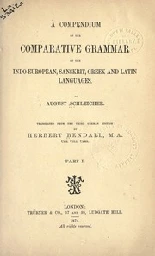
Linguistics
- Personal datives | Yale Grammatical Diversity Project: English in North America
Native English speakers, how do you use personal datives? Today I came across an interesting text on the phenomenon here. Here are some examples from the text:
>4] a. I got me some candy.
>b. You got you some candy.
>c. We got us some candy.
>5] a. He got him some candy.
>b. She got her some candy.
>c. *It got it some candy.
>d. They got them some candy.
(5c is marked with * to mark its grammatical unacceptability)
As a non-native speaker, I find sentences (4a) and (4c) to be natural, although I'd probably never use them myself. However, other sentences are odd to me, and seem as if they would cause confusion, they could be interpreted as if the subject got the candy for someone else. (4b), with 'you', is even more odd to my ears, even though a cited study says it is much more common than 3rd person constructions.
How do you perceive these sentences, are they all acceptable/natural to you?
- Sub-Indo-European Europe [open-access PDF]www.degruyter.com Sub-Indo-European Europe
The dispersal of the Indo-European language family from the third millennium BCE is thought to have dramatically altered Europe’s linguistic landscape. Many of the preexisting languages are assumed to have been lost, as Indo-European languages, including Greek, Latin, Celtic, Germanic, Baltic, Slavi...
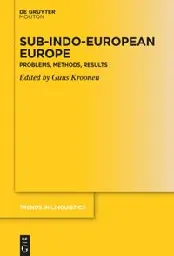
>The dispersal of the Indo-European language family from the third millennium BCE is thought to have dramatically altered Europe’s linguistic landscape. Many of the preexisting languages are assumed to have been lost, as Indo-European languages, including Greek, Latin, Celtic, Germanic, Baltic, Slavic and Armenian, dominate in much of Western Eurasia from historical times. To elucidate the linguistic encounters resulting from the Indo-Europeanization process, this volume evaluates the lexical evidence for prehistoric language contact in multiple Indo-European subgroups, at the same time taking a critical stance to approaches that have been applied to this problem in the past.
Part I: Introduction
Guus Kroonen: A methodological introduction to sub-Indo-European Europe
Part II: Northeastern and Eastern Europe
Anthony Jakob: Three pre-Balto-Slavic bird names, or: A more austere take on Oštir
Ranko Matasović: Proto-Slavic forest tree names: Substratum or Proto-Indo-European origin?
Part III: Western and Central Europe
Paulus S. van Sluis: Substrate alternations in Celtic
Anders Richardt Jørgensen: A bird name suffix *-anno- in Celtic and Gallo-Romance
David Stifter: Prehistoric layers of loanwords in Old Irish
Part IV: The Mediterranean
Andrew Wigman: A European substrate velar “suffix”
Cid Swanenvleugel: Prefixes in the Sardinian substrate
Lotte Meester: Substrate stratification: An argument against the unity of Pre-Greek
Guus Kroonen: For the nth time: The Pre-Greek νϑ-suffix revisited
Part V: Anatolia & the Caucasus
Rasmus Thorsø: Alternation of diphthong and monophthong in Armenian words of substrate origin
Zsolt Simon: Indo-European substrates: The problem of the Anatolian evidence
Peter Schrijver: East Caucasian perspectives on the origin of the word ‘camel’ and some notes on European substrate lexemes
- Term for modified aphorisms?

I have a question for folks here, mainly around English linguistics but would love to hear of parallels in other languages. If you're not big on cats, just skip the next paragraph, which I've include for the context to be clear and show why I have provided the picture.
This morning, one of my cats was acting up a bit, hopping on the table where I have an electronics project, and searching for something to pilfer. In order to halt this behavior, I distracted him with a good deal of play with his toys (he is very athletic, so, lots of tossing a toy mouse for him to chase, then walking over to where he's left it because he doesn't fetch anymore). The image is of the culprit now that he's worn out.
While trying to achieve this state, I had a modified aphorism occur to me:
> Idle cats are the Devil's playground.
It occurred to me then that I'm not sure if there is an extant term to describe taking an existing aphorism and modifying it while still conveying the same or similar meaning. For those not familiar, the original aphorism is "Idle hands are the Devil's playground" (apparently of biblical origin), meaning roughly that busy people don't often get into trouble or conversely that bored people will get into mischief.
There is a term, if informal, to describe, often intentional, mismatch of parts of aphorisms (ex. "Not the sharpest egg in the attic"), malaphor. Can anyone think of a similar extant term for a modified aphorism? If not, after trying multiple prefixes, I think that the least clunky seems to be "transaphor" (trans- meaning to change).
Anyone have thoughts on the matter?
- Five common English words we don't know the origins of—including 'boy' and 'dog'phys.org Five common English words we don't know the origins of—including 'boy' and 'dog'
The naming process, the act of naming the items of the world, is as old as the first words spoken by our ancestors. We can reconstruct the stages of this process through etymology, which studies the historical development of the lexicon of a language.

- Babbling scouse youngster shows babies can have accents, say scientistswww.theguardian.com Babbling scouse youngster shows babies can have accents, say scientists
Newborns are tuned in to the ups and downs of speech, and even a cry mimics language heard while in the womb

cross-posted from: https://feddit.uk/post/14265279
> > The upward intonation, the guttural “ck” and even the cheeky comeback to win the argument: at just 19 months old, baby Orla has mastered the crucial elements of speaking like a scouser. > > > >Impressively, the toddler who featured in a viral video this week appears to have done so without the need for actual words. > > > >A clip posted on TikTok, and now viewed more than 20m times, shows Orla babbling in a Liverpudlian accent as her babysitter, Olayka, tries and fails to coax her into taking a nap. Scientists say that the cute exchange is also a vivid illustration of the processes by which babies acquire language – and the surprising role of accents. > > > > Babies are so tuned in to the musical ups and downs of speech that even as newborns they cry in distinctive ways that reflect the languages that they have heard while in the womb. > > > >In one 2009 study, Prof Kathleen Wermke, a pioneer in the field of speech development at the Würzburg University in Germany, found that French infants tend to wail on a rising note and German babies favour a falling melody and other patterns have been seen for Mandarin, Swedish and African languages. “When I started 40 years ago, if I told people I was recording babies crying and making high-pitched sounds they’d look at you and think ‘Is this really science?’,” she said.
- 2,500-year-old slate containing drawings of battle scenes and paleo-alphabet discovered in Spainwww.livescience.com 2,500-year-old slate containing drawings of battle scenes and paleo-alphabet discovered in Spain
Archaeologists discovered the stone tablet at a Tartessian site in southwestern Spain.
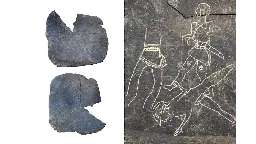
I'm sharing this here mostly due to the alphabet. The relevant region (Tartessos) would be roughly what's today the western parts of Andalucia, plus the Algarve.
Here are the news in Spanish, for anyone interested.
The number of letters is specially relevant for me - 32 letters. The writing system is a redundant alphabet, where you use different graphemes for the stops, depending on the next vowel; and it was likely made for a language with five vowels, so you had five letters for /p/, five for /t/, five for /k/. Counting the "bare" vowels this yields 20 letters; /m n s r l/ fit well with that phonology, but what about the other seven?
- Can You Lose Your Native Tongue?www.nytimes.com Can You Lose Your Native Tongue?
After moving abroad, I found my English slowly eroding. It turns out our first languages aren’t as embedded as we think.

- Baudolino: Lying About the Future Produces History - Umberto Eco, author of The Name of the Rose, speaks about his latest book, Baudolino, including translation

YouTube Video
Click to view this content.
- xkcd #2942: Fluid Speech

cross-posted from: https://programming.dev/post/15125500
> xkcd \#2942: Fluid Speech > > https://xkcd.com/2942 > > explainxkcd.com for \#2942 > > Alt text: > > Thank you to linguist Gretchen McCulloch for teaching me about phonetic assimilation, and for teaching me that if you stand around in public reading texts from a linguist and murmuring example phrases to yourself, people will eventually ask if you're okay.
- How 'Not' Changes Everything: Brain Interprets Negated Adjectives - Neuroscience Newsneurosciencenews.com How 'Not' Changes Everything: Brain Interprets Negated Adjectives - Neuroscience News
Researchers found that negating adjectives with "not" affects how our brains interpret their meaning, mitigating rather than inverting their definition.

- First languages of North America traced back to two groups from Siberiaphys.org First languages of North America traced back to two very different language groups from Siberia
Johanna Nichols, a linguist at the University of California, Berkeley, has used her pioneering work in the field of language history to learn more about language development in North America. She has found that it can be traced back to two language groups that originated in Siberia. Her paper is pub...
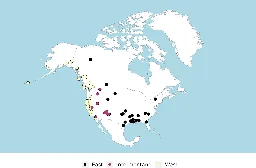
- Irish names you’re probably saying wrong and how to pronounce them | CNNedition.cnn.com Irish names you’re probably saying wrong and how to pronounce them | CNN
Find out how to pronounce common Irish names with our audio guide, plus read our Irish language hacks so you figure out names yourself.

- How climate change is altering Sami languagewww.bbc.com How climate change is altering Sami language
North Sami, a language spoken in the Arctic, has more than 300 words for snow and a special word for "frightened reindeer". Can it survive in a warmer world?

- Isolated for six months, scientists in Antarctica began to develop their own accentwww.bbc.com Isolated for six months, scientists in Antarctica began to develop their own accent
Isolated for six months one winter, a group of scientists changed how they spoke.

> they were taking part in an unusual experiment, which involved tracking their own voices over time. This was done by making 10-minute recordings every few weeks. They would sit in front of a microphone and repeat the same 29 words as they appeared on a computer screen. Food. Coffee. Hid. Airflow.
> One of those changes was the "ou" sound in words such as "flow" and "sew" that shifted towards the front of the vocal tract.
I'm not actually sure what sound change they're describing there. Can anyone explain with examples or IPA?
edit: Cheers for the answers (turns out I misunderstood which part is the vocal tract)
- The End of the Slavic Linguistic Unity (in French, but with English subtitles)
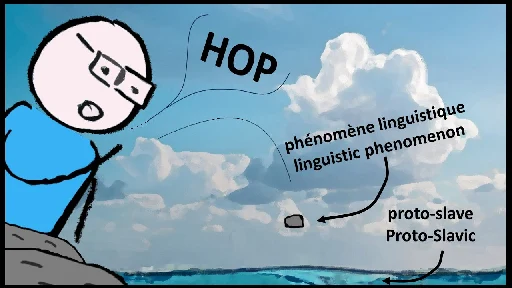
YouTube Video
Click to view this content.
- Esperanto: The artificial language that aimed to unite humanitybigthink.com Esperanto: The artificial language that aimed to unite humanity
A language for the world has been the dream of many thinkers for millennia. Esperanto was created to fill that role. Here is its story.

- Sloshed, plastered and gazeboed: why Britons have 546 words for drunkennesswww.theguardian.com Sloshed, plastered and gazeboed: why Britons have 546 words for drunkenness
Combine ribald humour with peculiar sentence construction and a genuinely horrifying drinking culture, and what do you get? A dictionary’s worth of ‘drunkonyms’

- A Vasconic inscription on a bronze hand: writing and rituality in the Iron Age Irulegi settlement in the Ebro Valley | Antiquity | Cambridge Corewww.cambridge.org A Vasconic inscription on a bronze hand: writing and rituality in the Iron Age Irulegi settlement in the Ebro Valley | Antiquity | Cambridge Core
A Vasconic inscription on a bronze hand: writing and rituality in the Iron Age Irulegi settlement in the Ebro Valley - Volume 98 Issue 397
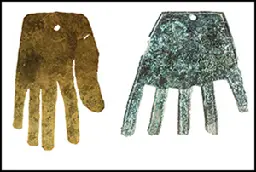
- The decimal point is 150 years older than historians thoughtwww.nature.com The decimal point is 150 years older than historians thought
Origin of the powerful calculation tool traced back to a mathematician from the Italian Renaissance.

- Duolingo Sucks, Now What?: A Guideruhua-langblr.tumblr.com Duolingo Sucks, Now What?: A Guide
Now that the quality of Duolingo has fallen (even more) due to AI and people are more willing to make the jump here are just some alternative apps and what languages they have: "I just want an...
- Rizz, the word of the year, explainedwww.vox.com Rizz, the word of the year, explained
The evolution of a viral term, according to the "Livvy rizzed up Baby Gronk" guy.
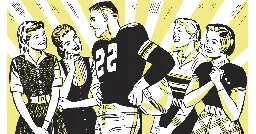
- What Is Punctuation For? - JSTOR Dailydaily.jstor.org What Is Punctuation For? - JSTOR Daily
Between the medieval and modern world, the marks used to make writing more legible changed from “pointing” to punctuation.
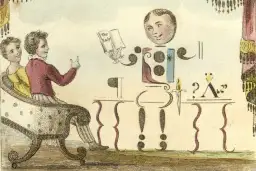
- The Linguistics Iceberg Explainedyt.artemislena.eu The Linguistics Iceberg Explained
Patreon: https://www.patreon.com/duncanclarke Instagram: https://www.instagram.com/duncansclarke/ Twitter: https://twitter.com/duncanc_ Discord: https://discord.gg/6rCbemyhRy Explaining the story behind the most interesting linguistic theories, artifacts, and languages. This completes the cogniti...

- Why is /æ/ raising so unknown?
Hi, I'm a casual linguistics nerd (no degrees), speaking Philippine English with heavy American influence.
My accent of English has pre-nasal /æ/ raising and I've caught myself raising it in other places like before /g/.
When I look at English language learning videos (out of curiosity) I have not found anyone mention /æ/ raising in them.
Why is this case?
- [PDF] A compendium of the comparative grammar of the Indo-European, Sanskrit, Greek, and Latin languages (August Schleicher)
I'm sharing this mostly as a historical curiosity; Schleicher was genial, but the book is a century and half old, science marches on, so it isn't exactly good source material. Still an enjoyable read if you like Historical Linguistics, as it was one of the first successful attempts to reconstruct a language based on indirect output from its child languages.
- [Sci.News] Post-Neolithic Diet-Induced Dental Changes Led to Introduction of ‘F’ and ‘V’ Soundswww.sci.news Post-Neolithic Diet-Induced Dental Changes Led to Introduction of ‘F’ and ‘V’ Sounds | Sci.News
A class of speech sounds that is now present in nearly half of the world’s languages -- labiodentals, produced by positioning the lower lip against the upper teeth, such as in ‘f’ or ‘v’ -- are a relatively recent development, one brought about by post-Neolithic diet-induced changes in the human bit...
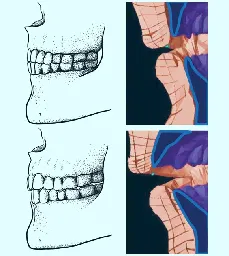
Link for the Science research article. The observation that societies without access to softer food kind of avoided labiodentals is old, from 1985, but the research is recent-ish (2019).
